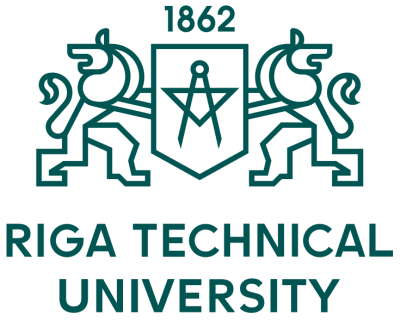
Bachelor of Aviation Transport
DURATION
4 Years
LANGUAGES
English
PACE
Full time
APPLICATION DEADLINE
01 Aug 2025*
EARLIEST START DATE
01 Sep 2025
TUITION FEES
EUR 3,540 / per year **

STUDY FORMAT
On-Campus
* Application deadlines are country-dependent, and applications close as early as May 1 for some countries. Please check our applications timeline for more information: https://www.rtu.lv/en/studies/admission-1
** 150 EUR one-time application fee | 250- 500 EUR one-time deposit
Introduction
Earn a Professional Bachelor's Degree in Aviation Transport at RTU and gain the expertise needed to excel in the fast-paced aviation industry as a highly qualified aviation maintenance engineer.
The programme’s contents comply with the European Aviation Safety Agency (EASA) and the Civil Aviation Agency (CAA) and equip students with the skills to maintain, repair, and supervise aircraft mechanical, electronic, and electromechanical systems, ensuring they meet the highest industry standards.
With a strong focus on technical expertise, problem-solving, and research, students gain hands-on experience and the ability to analyse economic aspects, plan engineering tasks, and implement innovative solutions in aviation maintenance.
Why Aviation Transport at RTU?
The programme offers a comprehensive, industry-focused education that prepares you to become a skilled aircraft maintenance engineer, with a strong foundation in both mechanical and electronic systems. Our campus facilities feature life-size aircraft, providing students with valuable hands-on experience before entering the global job market.
With expert faculty mentorship in various aircraft-related fields and abundant networking opportunities, you will be able to build industry connections to kick-start your career in organisations dedicated to aircraft operation, maintenance, repair, and research in the aviation sector.
The RTU advantage:
- Gain access to our modern facilities, including the best-equipped prototyping workshop in the Baltic states and take advantage of our next-generation equipment.
- Learn from world-class faculty and dedicated research mentors and expand your academic horizons through study-abroad opportunities.
- Spend your days on a green campus that prioritises sustainability, exemplified by our ranking as the 40th greenest university in the world (GreenMetric University Rankings 2024).
- Build a global network by studying alongside students from 98 countries, engaging in industry events, and participating in student-led innovation initiatives that connect you to the future of engineering.
Questions?
Want to learn more about the programme, accommodation options, or admission requirements? Don’t hesitate to reach out to our Admissions team:
admission@rtu.lv
+371 67089766 (call)
+371 25714286 (WhatsApp, messages only)
Gallery
Ideal Students
The ideal candidate for this programme is someone:
- with a strong academic background in mathematics, physics and such technical subjects as mechanics, electronics, and engineering principles;
- passionate about aviation and technology, and implementing innovative solutions in aviation maintenance;
- with a keen interest in gaining hands-on experience with life-sized aircraft;
- interested in building a successful career in aircraft maintenance and repair.
Admissions
Scholarships and Funding
The Latvian government offers scholarships for RTU bachelor’s and master’s students from select countries.
To apply, you must receive provisional acceptance from RTU. For more information about the application process and the list of eligible countries, visit the Study in Latvia website.
Scholarship:
- €500 per month for bachelor’s students for up to 10 months;
- €600 per month for master’s students for up to 10 months.
Eligible applicants:
- Bachelor's students who have already completed at least 1 academic year at any higher education institution (HEI);
- Master’s students from any previous HEI.
Curriculum
Compulsory Study Courses
General Education Study Courses
- Innovative Product Development and Entrepreneurship
- Civil Protection
- Basics of Labor Protection
- Environment and Climate Roadmap
- Introduction to the Aviation Branch
- Aviation Legislation
Field-Specific Theoretical Basic and IT Study Courses
- Mathematics
- Supplementary Mathematics (Aviation Transport)
- Physics
- Fundamentals of Aerodynamics
- Fundamentals of Electronic Engineering
- Fundamentals of Electrical Engineering
- Technical Mechanics
- Modern Application Packages for Computers
- Computer Design of Machines and Mechanisms
Field-Specific Professional Study Courses
- Materials and Hardware
- Measurements in Avionics Devices and Systems
- Digital Techniques Electronic Instrument Systems
- Fundamentals of Aircraft Manufacturing Technology
- Electrical Power Supply Systems of Aircraft
- Aircraft Electrical Systems
- Engineering Diagnostics of an Aircraft
- Aerodynamics of Aircrafts
- Technical Operation of Aircraft and Engines
- Aircraft Aerodynamics, Structures and Systems
Compulsory Elective Study Courses
Field-Specific Study Courses
Technical Operation of Aircraft
- Mechanics of Airframes (Study Project)
- Aircraft and Engine Structure (Study Project)
- Aircraft and Powerplant Maintenance (Study Project)
- Devices and Systems of Control of Aircraft Powerplant
- Theory of Aircraft Engines
- Structure and Strength of Aviation Gas Turbine Engines
- Aircraft Aviation and Radioelectronic Equipment
- Aircraft Strength
- Fluid and Gas Systems of Aircraft
- Propeller
- Heat Technics and Thermodynamics
- Aerohydromechanics
- Organization and Ensuring of Aircraft Operation
Technical Operation of Aircraft Electronic Equipment - Avionics
- Digital Techniques Electronic Instrument Systems (Study Project)
- Aircraft Electrical and Power Supply Systems (Study Project)
- The Technical Maintenance of the Aircraft Electrical Devices (Study Project)
- Antennae and Propagation of Radio Waves
- Basics of Aviation Devices and Systems
- Aviation Communication Systems and Nets
- Propulsion
- Special Chapters of Electronic Engineering
- Aircraft Automatic Control Systems
- Aircraft Radio Location Systems
- Aircraft Radio Navigation Systems
- Radio Transmitters and Radio Receivers
- Fundamentals of Communication Systems
- Global Satellite Navigation Systems
Humanities and Social Sciences Study Courses
- Aviation Technical English
- Human Factor
- Economics of Aviation Transport
- The English Language
- Basic Ethics
- Basics of Communication
- Social Psychology
Other Courses
- Free Elective Study Courses
- Practical Placement (in mechanics/avionics)
- Final Examination: Bachelor Thesis including Project
Program Outcome
Graduates of the study programme will have a comprehensive understanding of mechanics or avionics specific to the aviation industry, demonstrating general and specialised knowledge of key concepts and principles within the field.
They will be able to analytically assess the systems of mechanical or electronic equipment used in aviation, applying their theoretical knowledge and skills to make informed decisions and address challenges related to aircraft technical operation and maintenance.
They will possess the ability to communicate technical aspects of aviation maintenance clearly to both specialists and non-specialists.
Finally, they will exhibit a strong sense of professional ethics, understanding the impact of their work on both the environment and society, and actively contribute to the advancement of the aviation transport system.
Program Tuition Fee
Career Opportunities
Graduates of this programme have a wide range of career opportunities in organisations and companies that operate or maintain aircraft.
As aircraft maintenance engineers, they can work in roles involving the technical operation, maintenance, and repair of both mechanical and electronic systems on aircraft. This includes tasks such as monitoring and maintaining aircraft mechanical equipment, as well as electronic, electrical, and electromechanical systems.
Potential employers include:
- airlines, aviation service companies;
- aircraft manufacturers;
- maintenance organisations;
- and research institutions in the aviation sector.













